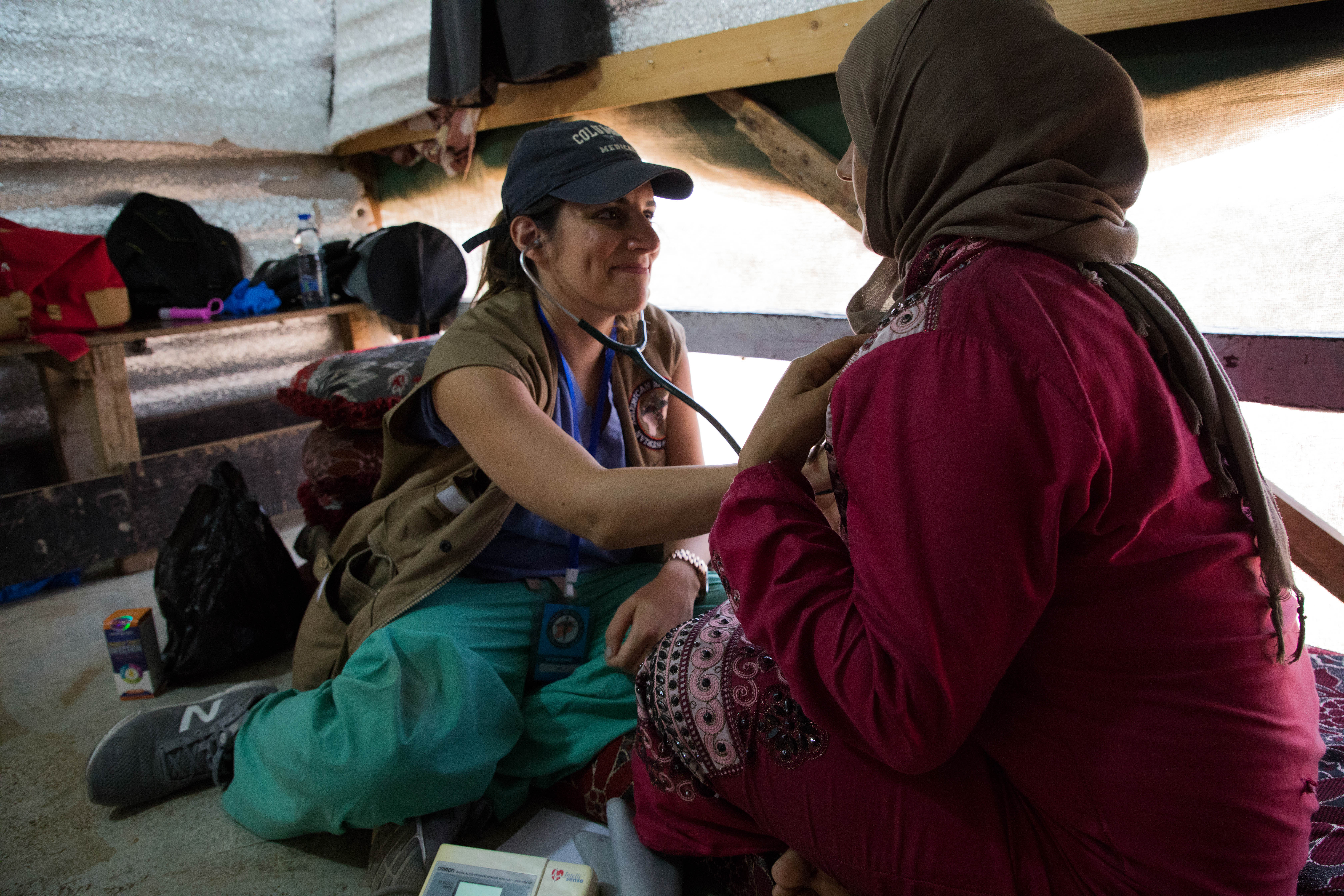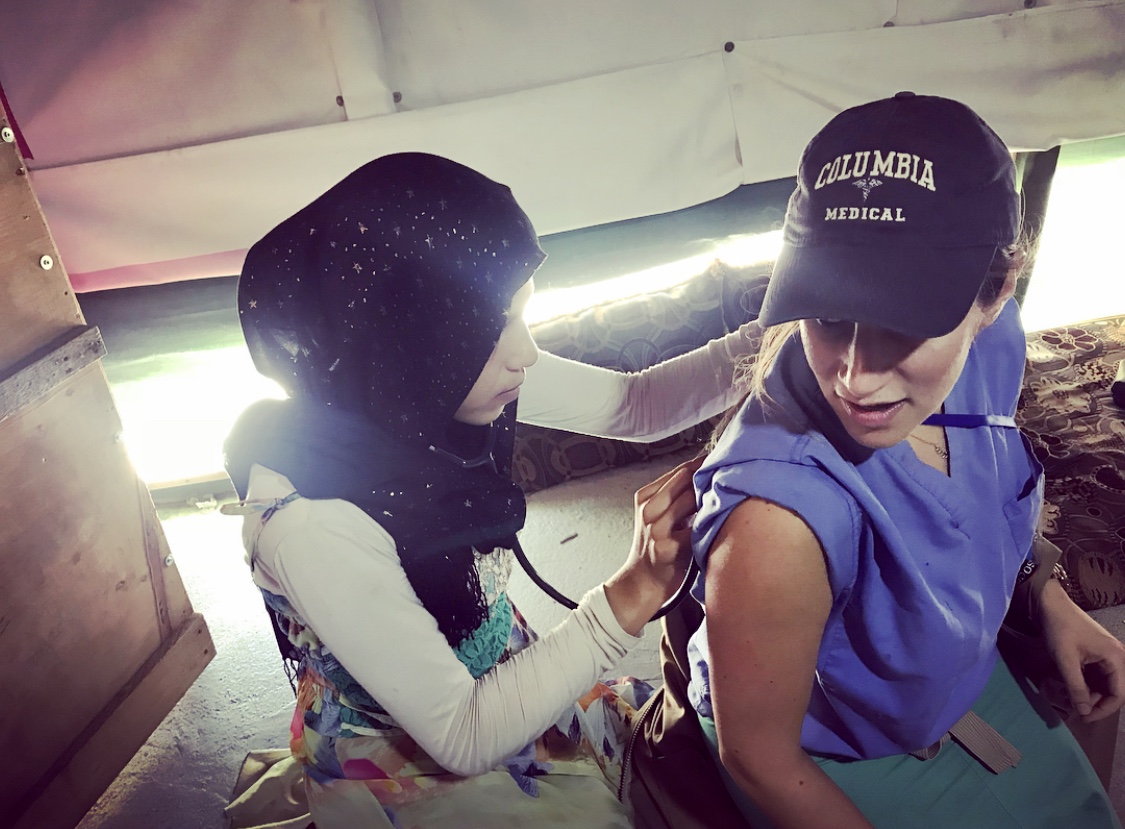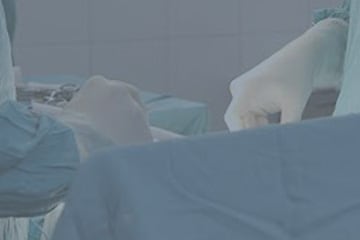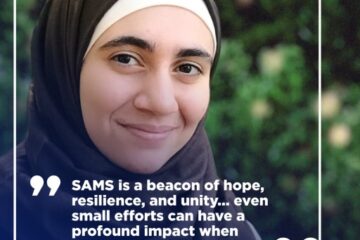August 29, 2018
In the informal settlements in Akkar, near the Syria-Lebanon border, the atmosphere was entirely different than our clinic in Tripoli. Although the work conditions were harder with the scorching sun and dusty air, the ebullient spirit of the children brought joy and much needed lightness. They often greeted us playfully, jumping on our backs or singing and clapping. Many waited at the “door” of the examination tent to collect our medical gloves and turn them into water balloons. However, our pediatricians were startled to find that many had growth failure, with heights and weights significantly below their expected curves. Handing out the large bottles of multivitamins we brought from the US suddenly took on a different, more vital meaning.
There were other instances of vital care we came across in the settlements. One of our astute emergency medicine doctors diagnosed pre-eclampsia in a hypertensive 36 weeks pregnant woman with twins. This condition can be life threatening for the mother and her baby, and it requires immediate delivery. The doctor and SAMS staff worked relentlessly to have the patient transferred to the nearest hospital where she delivered healthy twins by a cesarean section. Our team was elated when we received a photo of the baby twins the following day with a thank you note.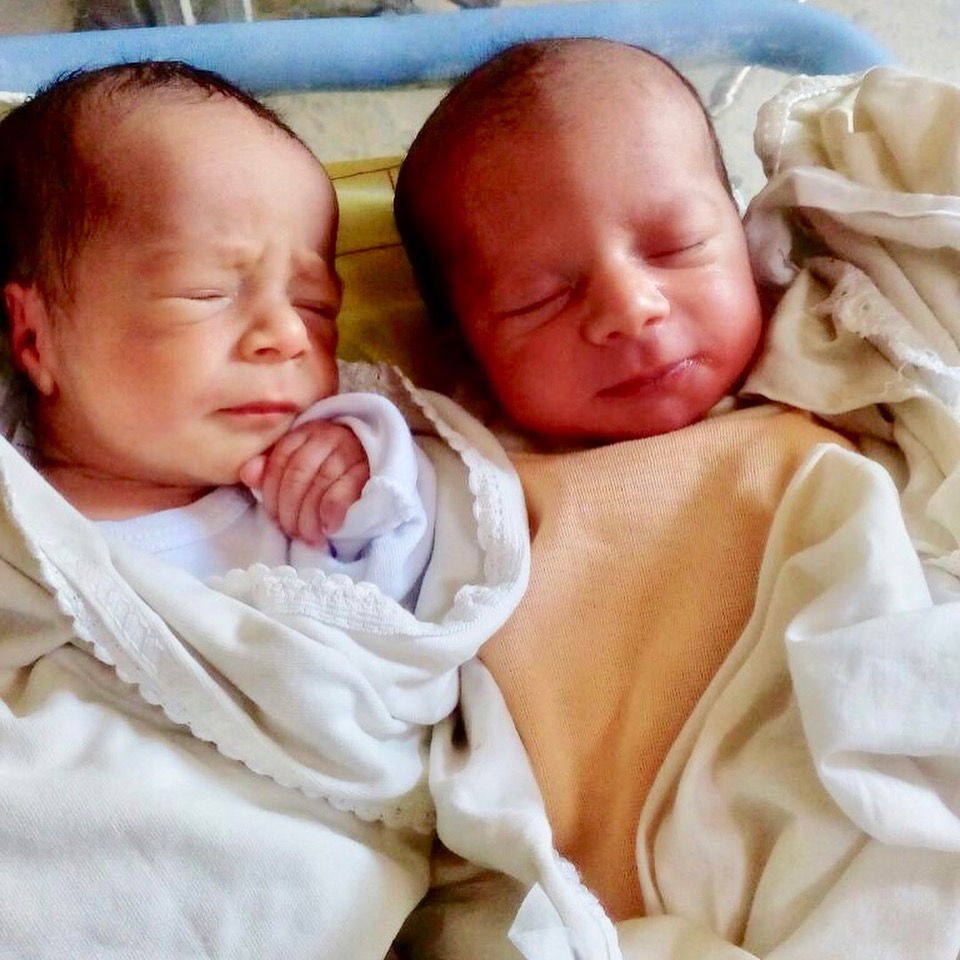
Another patient we saw, a 48-year-old man with a family, came to us with a headache which had been increasing for the past two years. The pain had become unbearable and was now associated with nausea, anorexia, and one-sided weakness. He handed the doctor a brain MRI, obtained two days prior and paid for with money borrowed from family and friends. When our colleague lifted one of the MRI images against the sunlight outside the tent, he froze. A large mass was pressing on one side of his brain, causing swelling and a dangerous shift in the brain tissues. In light of the swelling and shift in tissue, we decided to give the patient high dose steroids. But this was easier said than done: our mobile pharmacy operated by Dr. Wafic, the SAMS pharmacist from Aleppo, only carried liquid dexamethasone, a very potent steroid. So, here we were: a cardiologist, a hospitalist, and an emergency medicine doctor from Cornell in a sweltering hot alley between tents in a rural refugee camp on the Syrian-Lebanese border, converting milligrams to milliliters with a measuring cup to attempt to temporize our patient’s symptoms. With Dr. Wafic’s help, we were able to give the patient the correct dosage of steroids, anti-nausea, and anti-seizure medications. Together we made an urgent referral to a surgical center in the Beka’a Valley and our patient was able to obtain a neurosurgical consultation two days later.
There were also had lighthearted moments, when two teenage girls dreaming of becoming doctors assisted our physicians. They learned how to check blood pressures, listened to heartbeats with a stethoscope, and watched in awe as the doctors performed ultrasounds on pregnant women. The excitement when they identified the baby’s head or the heartbeat in utero was unforgettable. One of our physicians became emotional thinking of the obstacles her teenage “assistant” faced to become a doctor. We couldn’t help but be impressed by the heartening aspirations of the refugee youth despite their circumstances, and we hope that our encounters with these young girls would be an inspiration for them to overcome those obstacles and fulfill their dreams.
Knowing those challenges and hearing these stories, we left even more inspired and determined. This mission has been a powerful life-changing experience for many of us. In providing quality and dignified medical care, we gained in wisdom, humanity, and compassion. Through our daily interactions with refugees, we learned about the incredible strength, resilience, and spirit of the Syrian people. We learned about SAMS’ extraordinary efforts and remarkable dedication to make a difference despite a myriad of challenges. The mission reinforced our commitment to continue to advocate for refugees and for the most vulnerable beyond our time in Lebanon.

